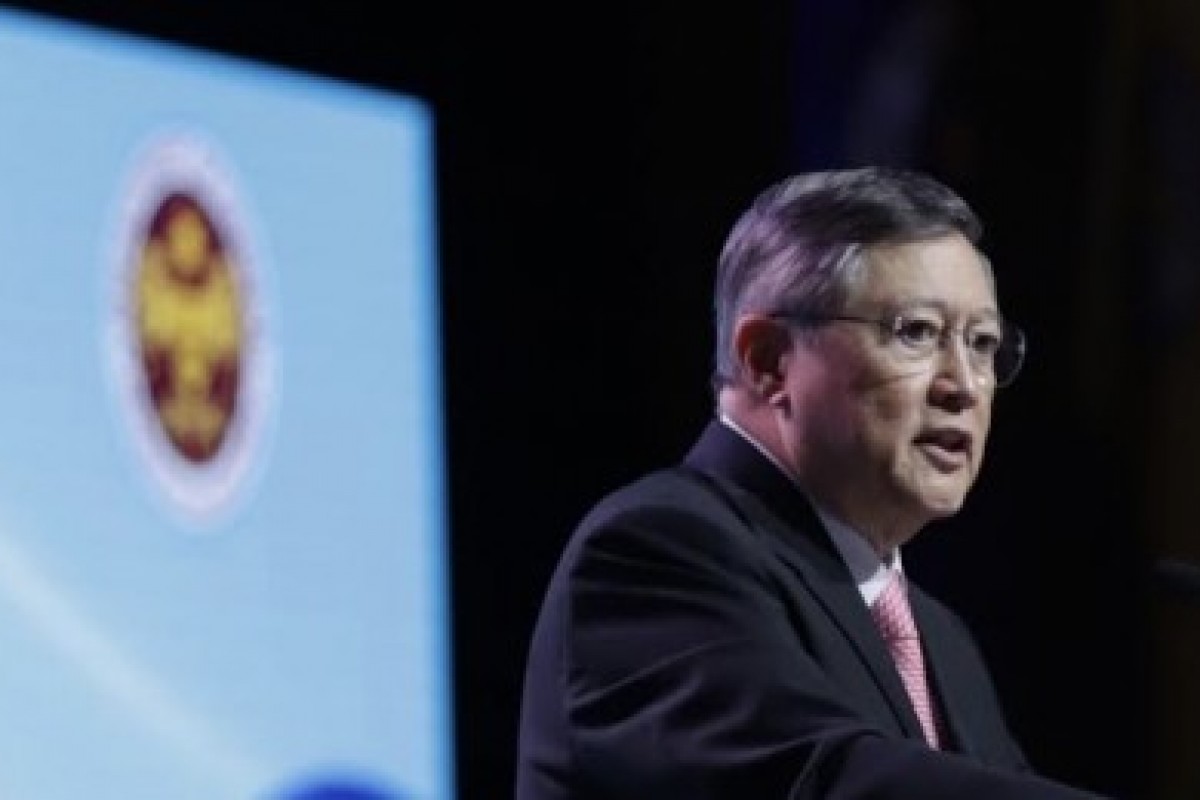GLASGOW -- Philippine Finance Secretary Carlos Dominguez III said here the support extended by multilateral institutions to the clean energy transition projects of developing economies is crucial to encourage the flow of private sector capital into these initiatives.
Dominguez said the meticulous planning and vetting done by multilateral agencies before extending assistance to projects will build confidence among private investors in mobilizing funds to participate in the resource-intensive programs of developing countries to transition to clean energy.
“The role of the multilateral agencies is very crucial in this part. The multilateral agencies actually are agents of governments. All of us as ministers sit as governors in ADB (Asian Development Bank) or World Bank (WB) or the Asian Investment Infrastructure Bank (AIIB). It is very important that these multilateral agencies actually begin the projects that will allow the private sector to take part, I believe, and give them confidence that these projects have been studied very well, have been vetted by the multilateral agencies,” Secretary Dominguez said during the 4th High-Level Ministerial Dialogue on Long-Term Finance held here last Nov. 3.
The ministerial dialogue is part of the series of high-level meetings held as part of the ongoing 26th United Nations (UN) Climate Change Conference of the Parties (COP26) hosted this year by the United Kingdom (UK) in partnership with Italy.
Secretary Dominguez, who heads the Philippine delegation this year to the UN COP26, said the support by multilateral institutions such as the WB, ADB, and AIIB will “open the doors for funds from the private sector to flow into actual projects on the ground.”
His statements were in response to a query by Rishi Sunak, Chancellor of the Exchequer of the UK, on how developing economies can unlock the trillions of dollars in private sector financing available for clean energy transition to fund “practical, tangible projects.”
Secretary Dominguez later pointed out that both sides--the governments represented by the ministers sitting as governors in multilateral banks, and the borrowers--trust these multilateral institutions "So why don’t we use them (multilateral banks) as catalysts and they can act as a seal of good housekeeping so that they set the standard for transparency," he said.
The ministerial dialogue on climate finance involved three panel discussions. Secretary Dominguez was part of the second panel, which tackled the progress made by countries to develop a financial system to support a net-zero and climate-resilient future.
Azucena Arbeleche, Minister of Economy and Finance of Uruguay; Alison Rose, Chief Executive of NatWest Group; and Mathias Cormann, Secretary-General of the Organisation for Economic Cooperation and Development (OECD) joined Secretary Dominguez and Chancellor Sunak in the panel discussion.
During the dialogue, Secretary Dominguez, who is also Chairman-designate of the Philippines’ Climate Change Commission (CCC), stressed that the Philippines is firm in its position that those who have emitted and continue to emit the most greenhouse gases must bear the largest financial burden in our transition to carbon neutrality.
“The Philippines, however, will not wait for Western nations to get their act together. Climate change is here. It’s happening. We are moving ahead with the implementation of actual projects on the grounds to enable us to meet our commitments,” he said.
He said the “Philippines is determined to move ahead even as other countries hesitate” on carrying out their climate change commitments.
Secretary Dominguez also cited the importance of the “blended approach” or sustainable orchestration of grants, investments, and subsidies to make climate finance work for its beneficiaries.
He said that because the funds involved in these three elements come from taxpayers and investors, accountability and transparency should be ensured both on the part of the beneficiary and donor countries to guarantee the prudent use of such climate finance aid.
During the dialogue, Secretary Dominguez enumerated some of the Philippines' initiatives in combating climate change, among them a landmark Energy Transition Mechanism (ETM) project supported by the ADB to accelerate the retirement of coal-fired power plants and boost the growth of renewable energy (RE) sources in Mindanao using an equitable, scalable and market-based approach.
He also cited the recent launching of the Philippines’ Sustainable Finance Roadmap to mobilize public and private investments in green projects.
The Philippines has also gathered its best scientists through the CCC’s National Panel of Technical Experts (NPTE) to craft and help execute localized programs to fight climate change, Secretary Dominguez said.
As its Nationally Determined Contribution (NDC) to the Paris Agreement, the Philippines has committed to a projected greenhouse gas emission reduction and avoidance of 75 percent from 2020 to 2030 for the agriculture, wastes, industry, transport, and energy sectors. (DOF)



